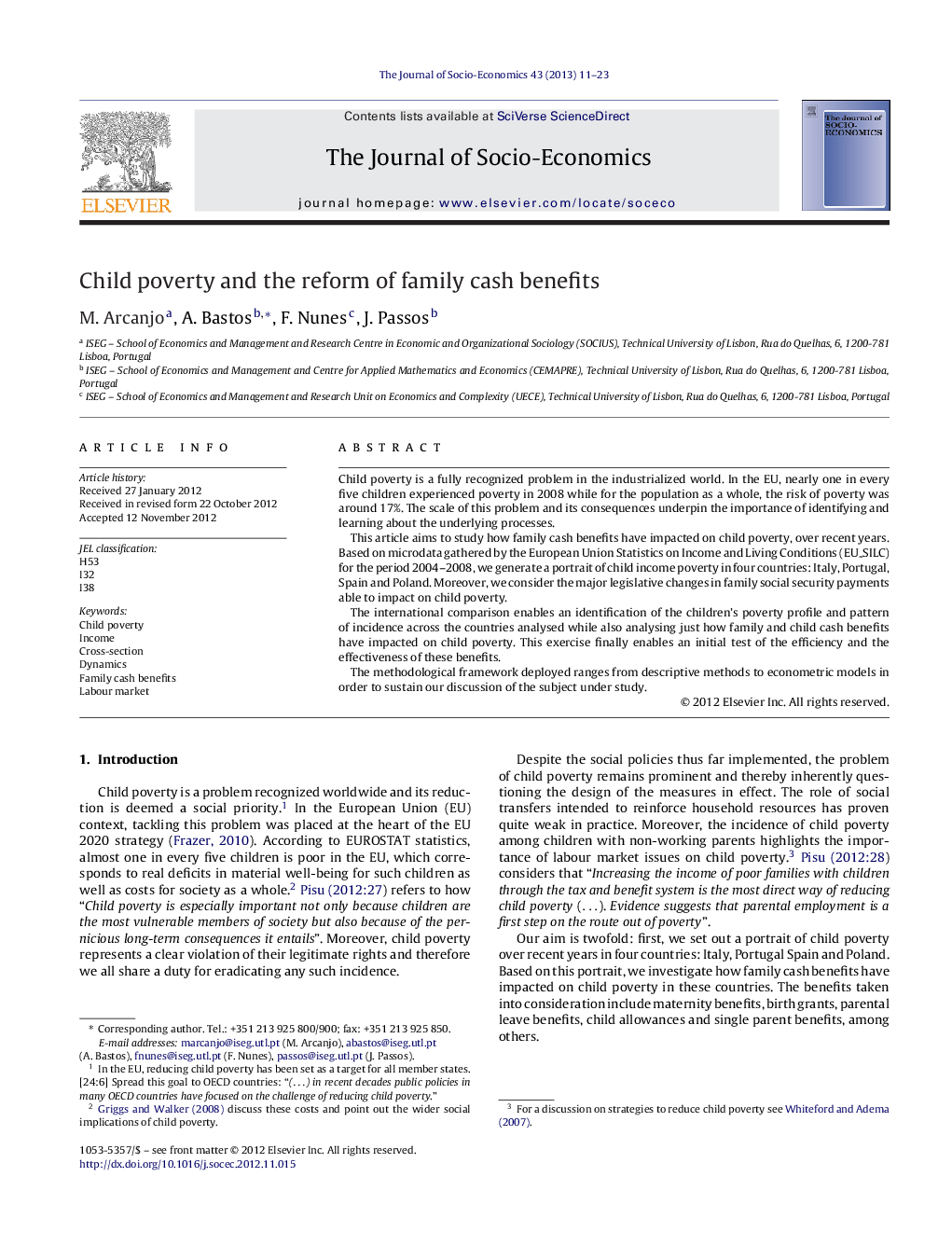| Article ID | Journal | Published Year | Pages | File Type |
|---|---|---|---|---|
| 970401 | The Journal of Socio-Economics | 2013 | 13 Pages |
Child poverty is a fully recognized problem in the industrialized world. In the EU, nearly one in every five children experienced poverty in 2008 while for the population as a whole, the risk of poverty was around 17%. The scale of this problem and its consequences underpin the importance of identifying and learning about the underlying processes.This article aims to study how family cash benefits have impacted on child poverty, over recent years. Based on microdata gathered by the European Union Statistics on Income and Living Conditions (EU_SILC) for the period 2004–2008, we generate a portrait of child income poverty in four countries: Italy, Portugal, Spain and Poland. Moreover, we consider the major legislative changes in family social security payments able to impact on child poverty.The international comparison enables an identification of the children's poverty profile and pattern of incidence across the countries analysed while also analysing just how family and child cash benefits have impacted on child poverty. This exercise finally enables an initial test of the efficiency and the effectiveness of these benefits.The methodological framework deployed ranges from descriptive methods to econometric models in order to sustain our discussion of the subject under study.
► We study how family/children cash benefits have impacted on child poverty. ► We consider the major changes in family policy and their impact on child poverty in four countries. ► In general, family cash benefits seem only to have a marginal effect in terms of reducing child poverty rates. ► The results obtained point to the importance of designing measures targeting specific individual groups.
